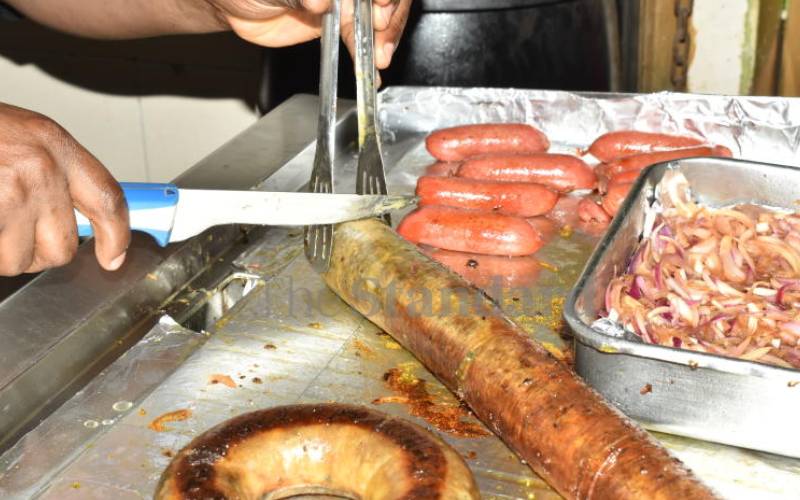
To prevent contamination, nutritionists say one needs to clean the chopping board after each use. [Samson Wire, Standard]
Food poisoning is a food-borne illness in which patients suffer diarrhoea, abdominal pain, nausea and vomiting. Unknown to many, one of the biggest causes of food poisoning happens to be one of the most used of household items - the chopping board in your kitchen.
Erick Ngereso, a dietician at Kenyatta National Hospital in Nairobi says the illness occurs when “food stays out too long at room temperature and becomes a breeding ground for harmful pathogens” including bacteria, viruses, parasites and other toxins.
Facts First
Unlock bold, fearless reporting, exclusive stories, investigations, and in-depth analysis with The Standard INSiDER subscription.
Already have an account? Login
 The Standard Group Plc is a multi-media organization with investments in media
platforms spanning newspaper print
operations, television, radio broadcasting, digital and online services. The
Standard Group is recognized as a
leading multi-media house in Kenya with a key influence in matters of national
and international interest.
The Standard Group Plc is a multi-media organization with investments in media
platforms spanning newspaper print
operations, television, radio broadcasting, digital and online services. The
Standard Group is recognized as a
leading multi-media house in Kenya with a key influence in matters of national
and international interest.











